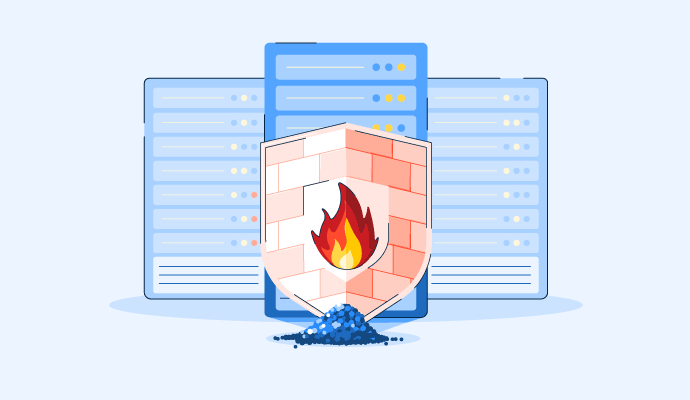The terms “physiotherapy” and “physical therapy” are often used interchangeably, leading to confusion about whether there is a substantive difference between the two. In this comprehensive exploration, we will delve into the intricacies of these terms and unravel any...
The terms “physiotherapy” and “physical therapy” are often used interchangeably, leading to confusion about whether there is a substantive difference between the two. In this comprehensive exploration, we will delve into the intricacies of these terms and unravel any distinctions that may exist.
Understanding the Common Ground
At their core, physiotherapy and physical therapy share a fundamental objective — the restoration and optimization of physical health. Both disciplines are rooted in evidence-based practices, employing a range of techniques to address musculoskeletal issues, injuries, and various physical impairments.

Explore The Difference Between Physiotherapy and Physical Therapy
I. Similar Techniques, Different Nomenclature
Despite the similarities in their approaches, the primary variance lies in the naming conventions used across different regions. Physiotherapy is a term commonly favored in many countries, while physical therapy is prevalent in others. The choice of terminology is often influenced by historical, cultural, or regional preferences rather than any significant disparity in methodologies.
II. A Focus on Comprehensive Rehabilitation
Whether termed physiotherapy or physical therapy, both practices emphasize a holistic approach to rehabilitation. Tailored exercises, manual therapy, and patient education form the cornerstone of these disciplines. The overarching goal is to enhance mobility, manage pain, and restore functionality, ensuring a patient’s return to an active and healthy lifestyle.
III. Navigating the Linguistic Landscape
To comprehend the nuance between physiotherapy and physical therapy, it’s essential to recognize that the distinction is more linguistic than substantive. Practitioners in either field share a commitment to personalized, patient-centric care, aiming to facilitate optimal physical well-being through scientifically validated methods.
IV. Promoting Functional Movement:
Irrespective of the terminology used, both physiotherapy and physical therapy underscore the importance of promoting and restoring functional movement. Whether it’s assisting individuals recovering from injuries or managing chronic conditions, the emphasis remains on improving overall quality of life through enhanced physical capabilities.
V. Choice Without Compromise
For individuals seeking rehabilitation, the decision between physiotherapy and physical therapy need not be a source of perplexity. The choice often boils down to personal or regional linguistic preferences, as the methodologies employed are essentially synonymous. Both disciplines offer a pathway to recovery, combining expertise, compassion, and a commitment to evidence-based practice.
The Need for Physiotherapy
Physiotherapy is a vital component of healthcare, addressing a range of physical issues and contributing to the overall well-being of individuals. Its significance lies in its ability to provide targeted interventions for various conditions, including injury rehabilitation, chronic pain management, and orthopedic disorders.
Injury Rehabilitation: Physiotherapy is indispensable in the rehabilitation of injuries, be it sports-related or resulting from accidents. Through personalized exercise regimens and hands-on techniques, physiotherapists facilitate the recovery process, restoring mobility and functionality. Chronic Pain Management: Physiotherapists excel in managing chronic pain by employing a multifaceted approach. They utilize exercises, manual therapy, and modalities to alleviate pain, empowering individuals to cope effectively and improve their quality of life. Orthopedic Conditions: The expertise of physiotherapists is crucial in addressing orthopedic conditions like arthritis and musculoskeletal disorders. By designing tailored interventions, they enhance joint function, alleviate pain, and improve the overall musculoskeletal health of their patients. Neurological Rehabilitation: Physiotherapy plays a pivotal role in neurological rehabilitation, aiding individuals affected by conditions such as stroke or spinal cord injuries. Specialized exercises and techniques help retrain the nervous system, enhancing motor skills and promoting independence. Preventive Care: Beyond treating existing conditions, physiotherapy plays a key role in preventive care. Physiotherapists educate individuals on proper body mechanics, design exercise programs to prevent injuries and promote overall physical well-being.The Need for Physical Therapy
Physical therapy is an essential facet of healthcare, offering tailored interventions to address a wide array of physical health challenges. Its significance extends to post-surgical recovery, preventive care, and optimizing sports performance, making it an integral part of holistic wellness.
Post-Surgical Recovery: Physical therapy plays a crucial role in post-surgical recovery, helping individuals regain mobility and functionality after medical procedures. Therapists design rehabilitation programs that expedite recovery, reduce complications, and enhance overall post-operative outcomes. Preventive Care: Physical therapists contribute significantly to preventive care by designing programs that help individuals maintain optimal physical health and prevent injuries. Their focus on biomechanics and movement patterns empowers individuals to adopt habits that reduce the risk of physical ailments. Sports Performance Optimization: Athletes rely on physical therapy to optimize their performance and prevent injuries. Physical therapists work on enhancing strength, flexibility, and addressing biomechanical issues to improve athletic capabilities and longevity in sports. Respiratory Conditions: Physical therapists are instrumental in managing respiratory conditions, employing techniques like chest physiotherapy and breathing exercises. This aids individuals with conditions like COPD in improving lung function and overall respiratory health. Holistic Wellness Approach: Physical therapy embraces a holistic approach to wellness, considering the interconnectedness of physical, mental, and emotional well-being. Therapists work with individuals to improve overall health, functionality, and quality of life.Physiotherapy Machines By UltraCare PRO
US111: Ultrasound Device
The US 111 Therapeutic Ultrasound Therapy Machine stands as a renowned medical innovation, offering a non-invasive solution for chronic muscle pain. Utilizing smart technology, this portable device generates pulsed and continuous 1 MHz sound waves, penetrating up to 1.6 inches into muscles. Effective for neck pain, chronic back pain, osteoarthritis, and more, it promotes muscular pain recovery, reduces swelling, and allows customized therapy control for length, intensity, and mode.

TENS 1.0: A Tens Machine

The TENS 1.0 by UltraCare PRO is a rechargeable dual-channel digital TENS Machine, that provides Transcutaneous Electrical Nerve Stimulation for comprehensive pain relief. This portable, battery-powered device transmits small electrical pulses to the skin, serving as an alternative to pain medication. Designed for nerve stimulation, it is a versatile solution for instant pain relief and an efficient physiotherapy pulse massager.
UltraGun PRO: A Massager Gun

The UltraGun PRO introduces advanced percussion therapy for deep-tissue muscle pain relief and increased blood flow. Portable and equipped with full-silicone massage heads, including a built-in flat head for oil massage, this massager vibration machine offers diverse massage options targeting specific muscle groups. With a high-torque brushless motor reaching 2300 PPM, it provides a quiet and peaceful massage experience, rejuvenating aching muscles.
SONICTENS: Dual Therapy Combination

SONICTENS combines Ultrasound (US) and Transcutaneous Electrical Nerve Stimulation (TENS) therapies. Ultrasound therapy utilizes therapeutic waves for skin penetration, stimulating tissues and providing pain relief. TENS employs electric current to stimulate nerves. Together, they offer a powerful modality for treating trigger points and alleviating chronic and acute muscular pain.
Combo3 Plus: Triple Therapy Combination
The Combo3 Plus stands as the ultimate solution for effective pain and muscle spasm treatment. Integrating Electrical Muscle Stimulation (EMS) and Transcutaneous Electrical Nerve Stimulation (TENS) therapy, this advanced IFT machine provides 3x more powerful treatment. With 13 adjustable modes and 30 preset programs, it targets pain, strengthens muscles, and accelerates relief for chronic pain. Portable and lightweight, Combo3 Plus allows on-the-go use, offering a precise, customized, and efficient treatment experience.
UltraCool Ball: Heat & Cool Therapy

The UltraCool Ball redefines massage recovery with its dual-action therapy. This innovative roller combines cold and heat treatments, providing a soothing and rejuvenating experience. Designed for targeted relief, it eases muscle tension, reduces inflammation, and promotes enhanced recovery. Compact and user-friendly, the UltraCool Ball is a versatile tool, delivering a refreshing approach to self-care and muscle wellness.
Physiotherapy Machines Benefits
Alleviates acute and chronic pain. Facilitates muscle recovery and strength-building. Enhances joint flexibility and range of motion. Incorporates exercises for injury prevention. Tailors treatments to individual needs. Manages inflammation. Speeds up recovery and tissue regeneration. Offers diverse therapeutic devices. Non-invasive pain management alternatives. Enables at-home or on-the-go treatments.Conclusion
UltraCare PRO stands as a leading innovator in physiotherapy devices, providing cutting-edge solutions for pain relief and muscle rehabilitation. With a diverse range of products such as the TENS 1.0, UltraGun PRO, SONICTENS, and Combo3 Plus, UltraCare PRO exemplifies a commitment to excellence, offering advanced technology that empowers individuals to manage their physical well-being with efficiency and convenience.
The post Understanding the Big Difference: Physiotherapy vs. Physical Therapy appeared first on Portable Physiotherapy Machine & Equipment- UltraCare PRO.










